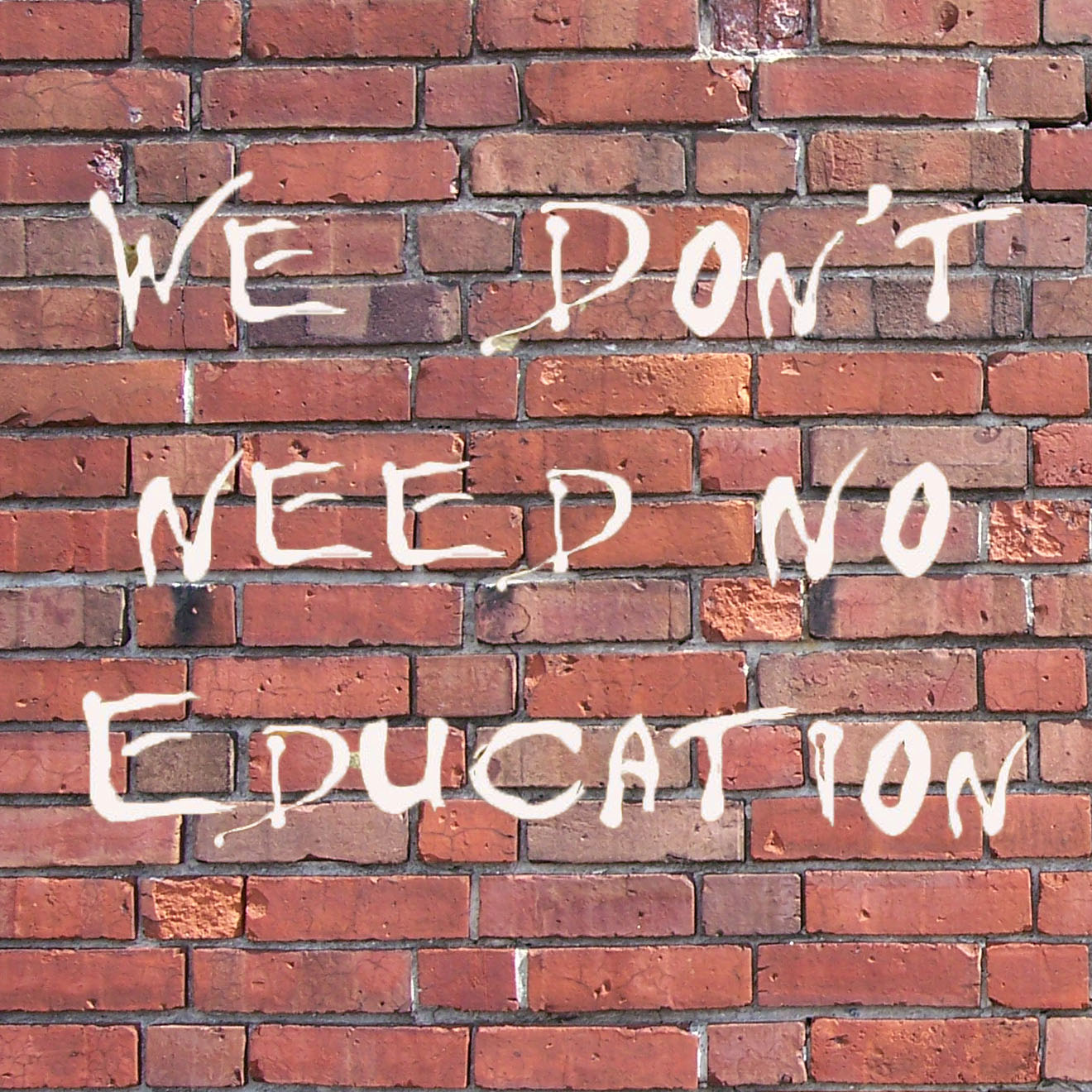double negative
We have all heard about the double negative – they are popular in music lyrics and as slang expressions. The meaning is understood, but the meaning is not based on proper grammatical rules and usage. In fact, the meaning is exactly the opposite if you read a double negative correctly.
For example, in a song line like “I ain’t no Mr. Nice Guy.” we understand that it is not meant to be understood literally. The singer means that Mr. Nice Guy is a bad guy. However, the correct grammatical interpretation of the statement is that he is not a bad guy. Two negatives – ain’t and no – equal a positive: “I am Mr. Nice Guy.” Ain’t is a slang contraction of ‘is not.’
 And then, there is Pink Floyd’s famous line from Another Brick in the Wall: “We don’t need no education.”
And then, there is Pink Floyd’s famous line from Another Brick in the Wall: “We don’t need no education.”
Using the double negative incorrectly is considered a sign that you have not had the best education. In the spirit of teen rebellion, the double negative is used to show a disrespect for any social norms, like proper grammar.
These days, the double negative is used mostly in its grammatically incorrect form.The double negative is usually produced by combining the negative form of verb – did not, was not, etc. with a negative pronoun such as nothing:
I didn’t do nothing.
I didn’t see nobody.
These sentences actually mean something positive, i.e.:
I did do something.
I saw somebody.
Double Negatives in Song Lyrics
Marron 5 – Ain’t no Sunshine
“Ain’t no sunshine (when she’s gone)”
Valerie June – Somebody to Love
“Cause you know it ain’t right,
Cause you ain’t got nobody”
The Rolling Stones – Satisfaction
“I Can’t Get No Satisfaction”
Chic – My Forbidden Lover
“My forbidden lover, I don’t want no other”
The instances when the double negative is used grammatically correctly is:
a) when it is used to express something in an understated way:
“We were not unhappy to have arrived at our destination.”
The words not and unhappy combine to say:
“We were (extremely) happy to have arrived at our destination.”
b) when it is used with a negative conjunction like neither, nor:
“Neither the deli nor the supermarket is open at 5 a.m.”



















